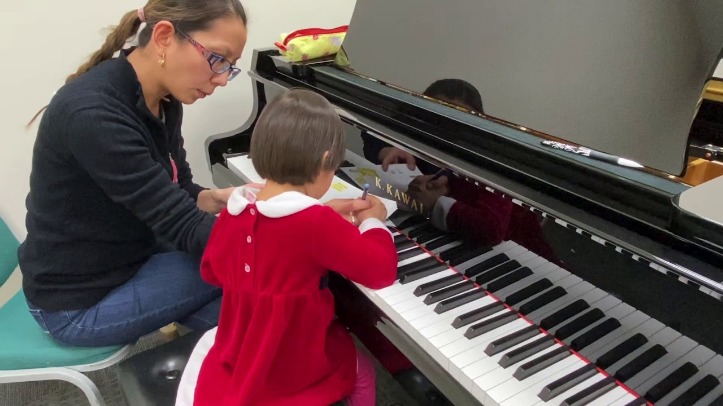Piano lessons for autism offer a unique and effective way to engage and inspire individuals on the autism spectrum. Music has long been recognized for its therapeutic benefits, and learning to play the piano can provide significant advantages for cognitive and emotional development. This article explores how piano lessons can be particularly beneficial for those with autism, offering strategies, benefits, and answers to common questions.
Benefits of Piano Lessons for Autism
1. Cognitive Development
- Enhanced Memory: Learning to read sheet music and memorize pieces helps boost memory and recall capabilities.
- Improved Attention Span: Practicing the piano requires sustained focus, which can help improve overall attention span over time.
- Problem-Solving Skills: Figuring out finger positions and rhythms strengthens analytical thinking and problem-solving skills.
2. Emotional and Behavioral Benefits
- Reduced Anxiety: The repetitive and rhythmic nature of piano playing can provide a calming effect, reducing anxiety and stress.
- Increased Self-Esteem: Mastering a new skill can provide a significant boost to self-esteem and confidence.
- Better Emotional Expression: Music offers a non-verbal outlet for expressing complex emotions, which can be particularly helpful for those who find verbal communication challenging.
3. Social Skill Development
Read more about Piano lessons for Autism here.
- Enhanced Communication: Interacting with a piano teacher provides a structured setting for practicing social communication skills.
- Teamwork and Cooperation: Group lessons or performances offer opportunities to develop teamwork and cooperation skills.
Strategies for Effective Piano Lessons
Customized Lesson Plans
Individualized lesson plans that take into account the unique needs and abilities of the student can maximize the effectiveness of piano lessons. Teachers should incorporate the student’s interests and preferred learning styles to make the lessons more engaging.
Visual and Auditory Aids
Using visual aids like color-coded notes and auditory aids like metronomes can significantly enhance the learning experience. These tools can make complex concepts more accessible and understandable.
Consistent Routine
Many individuals with autism thrive on routine. Establishing a consistent schedule for lessons can create a predictable environment that facilitates learning.
FAQs
Q: Can piano lessons help with sensory issues?
A: Yes, piano lessons can help desensitize sensory issues over time. The structured, repetitive nature of playing the piano can help individuals become more comfortable with sensory stimuli.
Q: How do I find a suitable piano teacher?
A: Look for teachers with experience in special education or music therapy. They will be better equipped to adapt their teaching methods to suit the needs of students with autism.
Q: What if my child doesn’t show interest immediately?
A: Patience is key. Some children may take time to warm up to new activities. Keep the lessons fun and engaging, and consider incorporating favorite songs or games to spark interest.
Conclusion
With their potential to enhance cognitive, emotional, and social skills, piano lessons for autism can be a powerful tool for unlocking the full potential of individuals on the spectrum. Tailoring lessons to meet individual needs and incorporating supportive strategies can lead to significant and rewarding progress.
